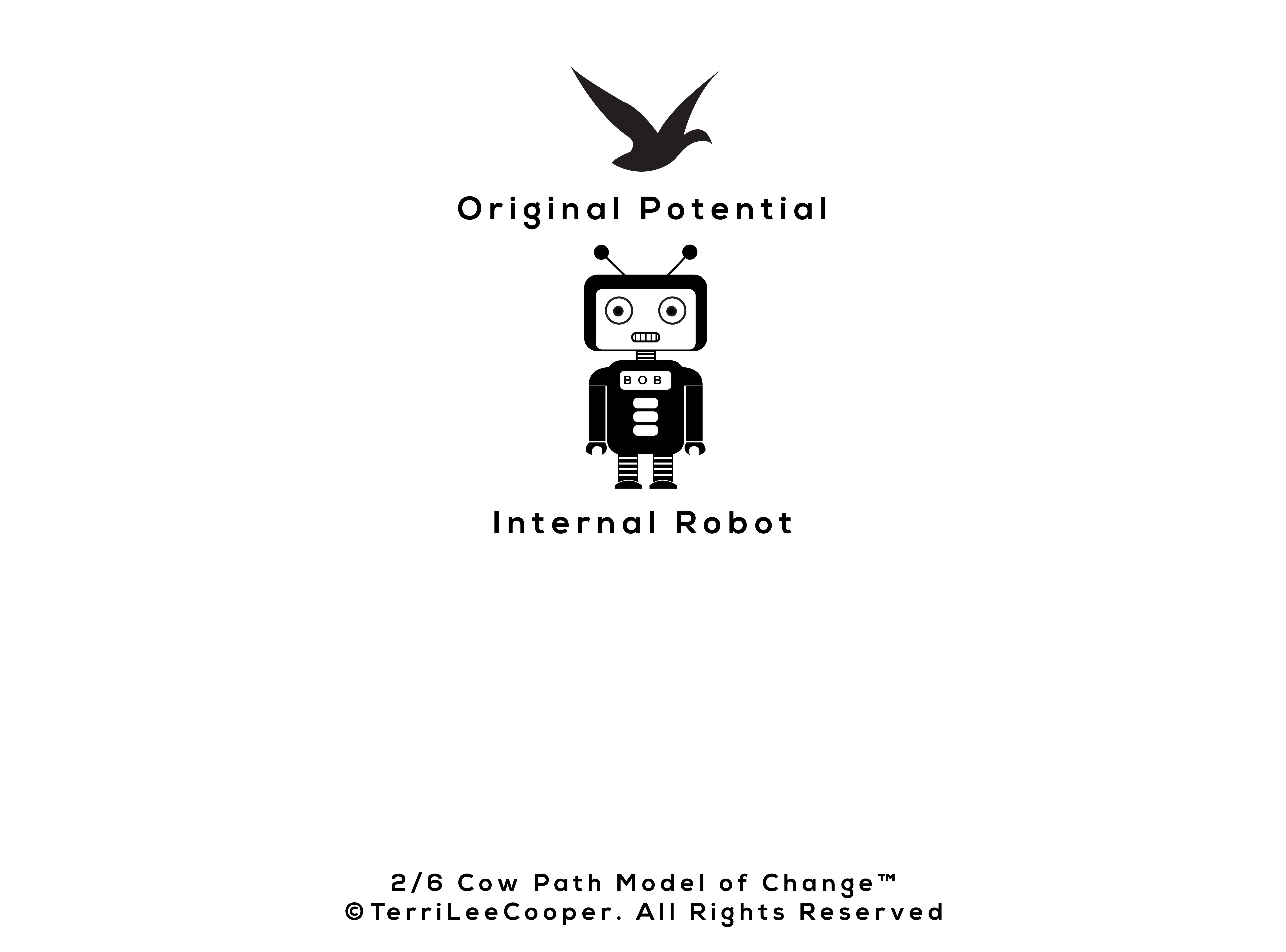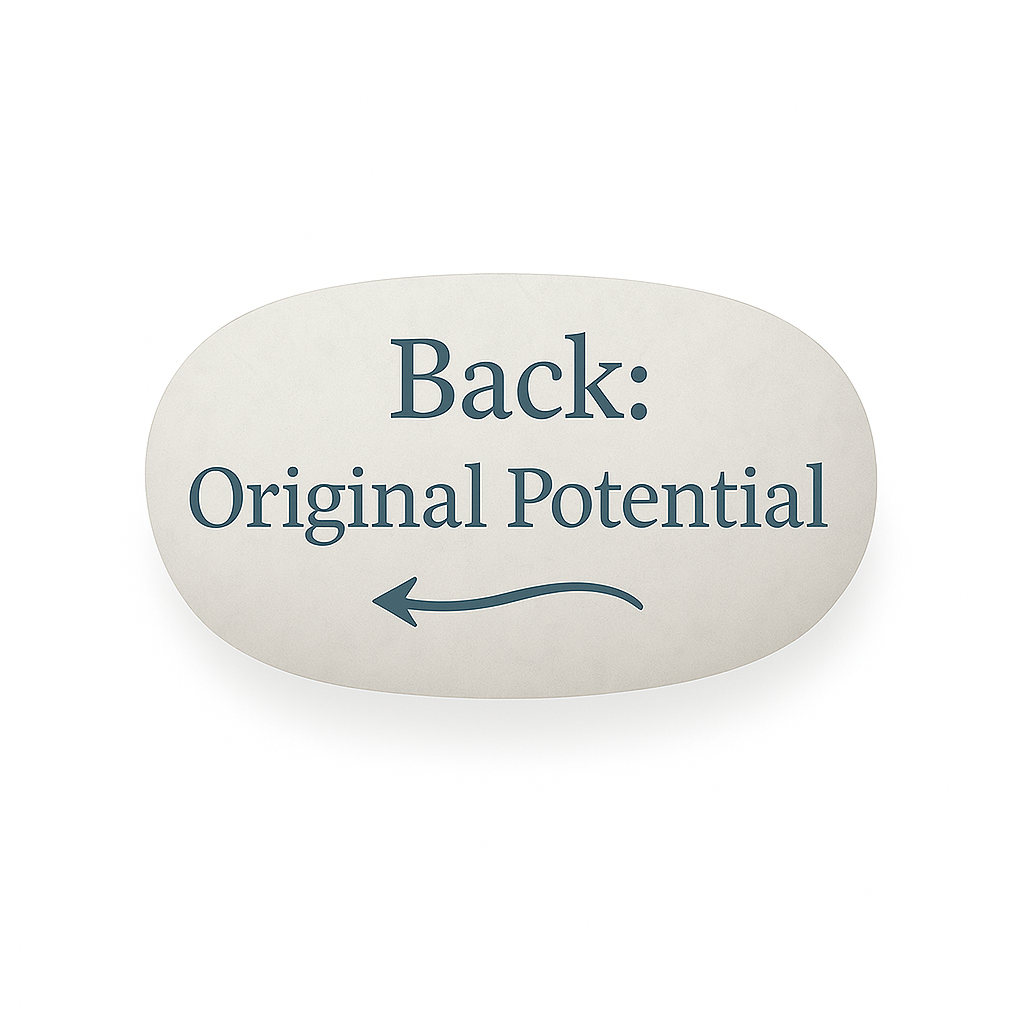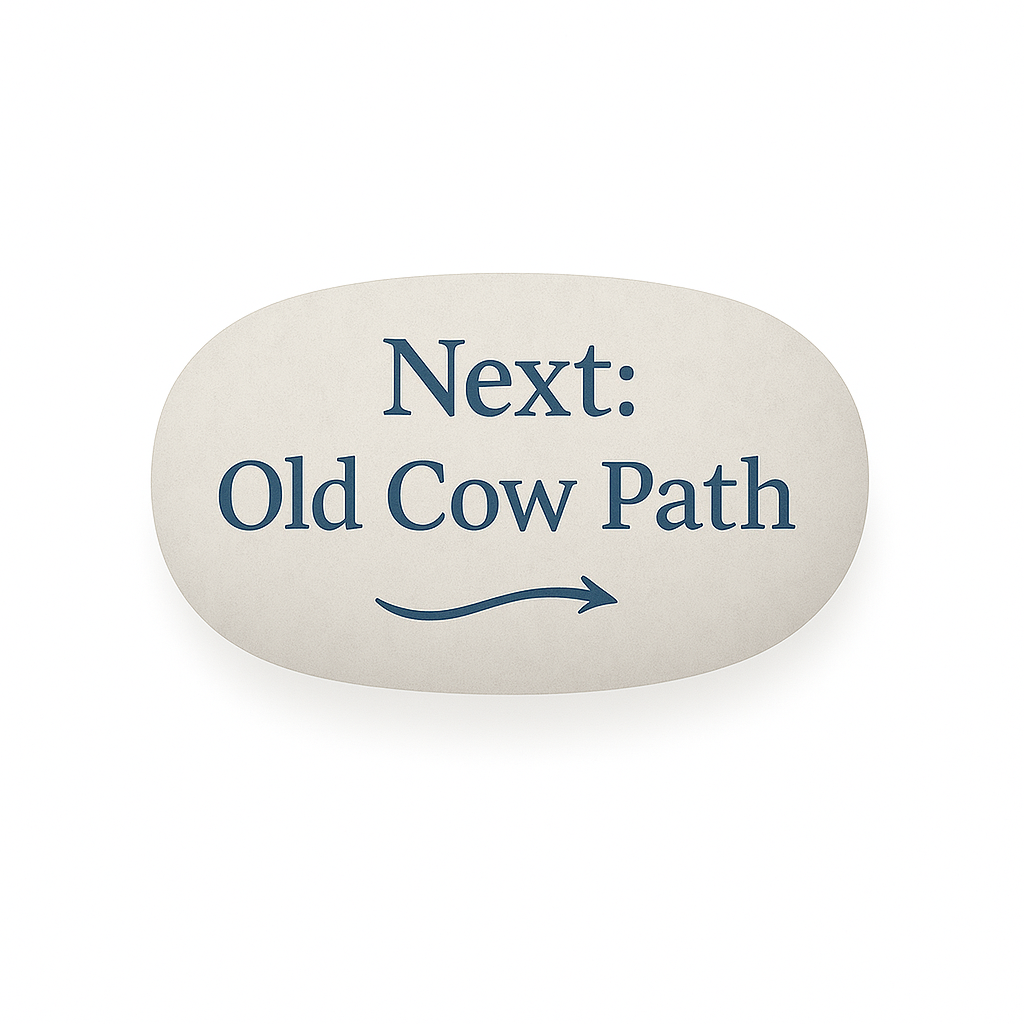Understanding the Mind’s Automatic Patterns in the Cow Path Model of
Change™
The Internal Robot

The Rhythm
Beneath Awareness
Each of us moves through the day accompanied by a quiet rhythm of repetition. We reach for familiar thoughts, reactions, and choices almost before we know we’ve made them.
Within the Cow Path Model of Change™, this background rhythm is
called the Internal Robot.
The Internal Robot represents the subconscious mind — the vast learning system
that keeps life running smoothly. It is literal, efficient, and has one
mission: to maintain the status quo.
It doesn’t pause to decide whether that status quo serves our growth, or creates pain or pleasure; it simply repeats what it has learned to repeat.
A Machine That Learned From Us
From our earliest years, this internal machinery absorbed information from every influence around us — the tone of a parent’s voice, the rules of belonging, the small rewards and corrections that shaped behavior.
The Internal Robot was
paying attention.
Its programs were written when we were most impressionable, before the
reasoning mind had a chance to question. It learned how to keep us safe,
accepted, and consistent.
Many of those early instructions were useful; others
slowly hardened into patterns that no longer fit the life we wish
to live.
The Cow Path Model of Change™ reminds us that these patterns are not moral
successes or failures.
They are simply well-rehearsed responses — the mind’s way of conserving effort and energy, always choosing the path of least resistance.
Paths of Least Resistance
The phrase path of least resistance describes the Internal Robot’s favorite route. It moves where it has moved before because repetition feels easy and safe.
The same
neural trails light up, the same emotional habits activate, the same stories
replay.
Some of these paths serve us beautifully: the ability to drive a car without
thinking through every gear shift, the instinct to comfort a friend, the reflex
to reach for water when thirsty.
Others keep us looping through old reactions
long after they’ve lost their purpose.
The Internal Robot does not judge between the two. It cannot discern helpful
from harmful — only familiar from unfamiliar.
Seeing the Internal Robot Clearly
When we begin to observe this automatic process, a gentle kind of clarity emerges. We notice that much of what we call “stuck” is simply the Internal Robot doing its job.
It is not our enemy; it is a persistent mechanism following its code.
Seeing it clearly softens self-criticism. We begin to understand that
repetition is not defiance or weakness but an echo of old programming.
Awareness allows space for choice to appear—the small pause between the impulse and the action, the breath between thought and response.
In that space, something new becomes possible.
Respecting the Machinery
Respect is central to this understanding. The Internal Robot maintains both the habits that sustain us and the ones that limit us.
Its persistence keeps our world
predictable. Rather than battling it, we can appreciate its efficiency.
By recognizing its patterns with curiosity, we begin to see how awareness
prepares the ground for change. Awareness by itself is not transformation, but
it makes transformation possible.
It allows us to observe the mechanism long enough to begin experimenting with new responses.
Over time, those deliberate
responses take root and begin to form new trails — new Cow Paths that reflect
who we are becoming rather than who we were taught to be.
This process unfolds gradually. Nothing is forced; everything begins with
noticing, followed by small acts of conscious choice.
Awakening Conscious Choice
As understanding deepens, a subtle shift occurs. We feel less ruled by circumstance and more in partnership with our own mind.
The Cow Path Model of Change™ calls this emerging sense of authorship self-leadership — the growing ability to guide our own patterns rather than be guided by them.
Awareness alone doesn’t rewrite the code, but it creates the pause where new programming can begin.
Through repetition and deliberate action, those new programs start to stabilize — becoming more natural, more automatic, more aligned with our potential.
From Automation to Intention
The journey from automation to intention begins with acknowledgment: this automatic system has been doing its work for a long time.
Once we see that,
resistance turns to cooperation. We no longer need to overthrow the Internal Robot; we
simply learn to include it in our awareness.
Each moment of noticing becomes an invitation to align the automatic with the
deliberate, the practiced with the possible.
In this way, the Internal Robot gradually transforms from a silent governor into a useful instrument — still mechanical, but now guided by consciousness.
Looking Ahead: Old Cow Paths
The Internal Robot shows us that repetition is not destiny; it is simply the starting point of choice.
The next part of the Cow Path Model of Change™ explores the Old Cow Paths themselves — the worn routes the Internal Robot has been walking for years.
By
recognizing those familiar trails, we begin to understand why change can feel
like friction and how awareness, combined with deliberate practice, turns that
friction into movement.
© Terri Lee Cooper – Cow Path Model of Change™

